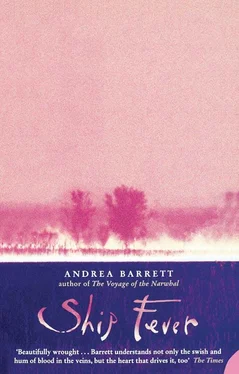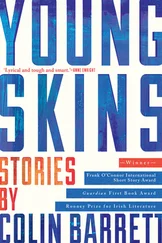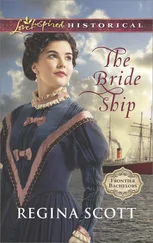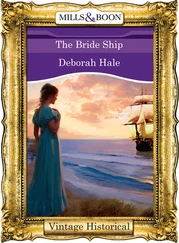1 ...8 9 10 12 13 14 ...58 Jessie is twenty-four, and Gordon is twenty-two; Mickey is twenty-one, and Cora and Ryan are both nineteen. When they visit Jonathan and Ruby they spend an unhealthy amount of time talking about their past. In their conversations they seem to split their lives into three epochs: the years when what they think of as their real families were whole; the years right after Jonathan and Ruby met, when their parents were coming and going, fighting and making up, separating and divorcing; and the years since Jonathan and Ruby’s marriage, when they were forced into a reconstituted family. Which epoch they decide to explore depends on who’s visiting and who’s getting along with whom.
“But we were happy,” Mickey may say to Ruby, if he and Ryan are visiting and Jonathan’s children are absent. “We were, we were fine.”
“It wasn’t like you and Mom ever fought,” Cora may say to Jonathan, if Ruby’s sons aren’t around. “You could have worked it out if you’d tried.”
When they are all together, they tend to avoid the first two epochs and to talk about their first strained weekends and holidays together. They’ve learned to tolerate each other, despite their forced introductions; Cora and Ryan, whose birthdays are less than three months apart, seem especially close. Ruby and Jonathan know that much of what draws their youngest children together is shared speculation about what happened on that island.
They look old to their children, they know. Both of them are nearing fifty. Jonathan has grown quite heavy and has lost much of his hair; Ruby’s fine-boned figure has gone gaunt and stringy. They know their children can’t imagine them young and strong and wrung by passion. The children can’t think — can’t stand to think — about what happened on the island, but they can’t stop themselves from asking questions.
“Did you have other girlfriends?” Cora asks Jonathan. “Were you so unhappy with Mom?”
“Did you know him before?” Ryan asks Ruby. “Did you go there to be with him?”
“We met there,” Jonathan and Ruby say. “We had never seen each other before. We fell in love.” That is all they will say, they never give details, they say “yes” or “no” to the easy questions and evade the hard ones. They worry that even the little they offer may be too much.
Jonathan and Ruby tell each other the stories of their talk by the tidal pool, their walks and meals, the sagging sofa, the moment in the parking lot, and the evening Ruby made her call. They tell these to console themselves when their children chide them or when, alone in the house, they sit quietly near each other and struggle to conceal their disappointments.
Of course they have expected some of these. Mickey and Gordon have both had trouble in school, and Jessie has grown much too close to her mother; neither Jonathan nor Ruby has found jobs as good as the ones they lost, and their new home in Palmyra still doesn’t feel quite like home. But all they have lost in order to be together would seem bearable had they continued to feel the way they felt on the island.
They’re sensible people, and very well-mannered; they remind themselves that they were young then and are middle-aged now, and that their fierce attraction would naturally ebb with time. Neither likes to think about how much of the thrill of their early days together came from the obstacles they had to overcome. Some days, when Ruby pulls into the driveway still thinking about her last class and catches sight of Jonathan out in the garden, she can’t believe the heavyset figure pruning shrubs so meticulously is the man for whom she fought such battles. Jonathan, who often wakes very early, sometimes stares at Ruby’s sleeping face and thinks how much more gracefully his ex-wife is aging.
They never reproach each other. When the tension builds in the house and the silence becomes overwhelming, one or the other will say, “Do you remember…?” and then launch into one of the myths on which they have founded their lives. But there is one story they never tell each other, because they can’t bear to talk about what they have lost. This is the one about the evening that has shaped their life together.
Jonathan’s hand on Ruby’s back, Ruby’s hand on Jonathan’s thigh, a shirt unbuttoned, a belt undone. They never mention this moment, or the moments that followed it, because that would mean discussing who seduced whom, and any resolution of that would mean assigning blame. Guilt they can handle; they’ve been living with guilt for fifteen years. But blame? It would be more than either of them could bear, to know the exact moment when one of them precipitated all that has happened to them. The most either of them has ever said is, “How could we have known?”
But the night in the library is what they both think about, when they lie silently next to each other and listen to the wind. It must be summer for them to think about it; the children must be with their other parents and the rain must be falling on the cedar shingles overhead. A candle must be burning on the mantel above the bed and the maple branches outside their window must be tossing against each other. Then they think of the story they know so well and never say out loud.
There was a huge storm three nights before they left the island, the tail end of a hurricane passing farther out to sea. The cedar trees creaked and swayed in the wind beyond the library windows. The students had staggered off to bed, after the visitor from Woods Hole had finished his lecture on the explorations of the Alvin in the Cayman Trough, and Frank and Gunnar and Carol had shrouded themselves in their rain gear and left as well, sheltering the visitor between them. Ruby sat at one end of the long table, preparing bottles of fixative for their expedition the following morning, and Jonathan lay on the sofa writing notes. The boat was leaving just after dawn and they knew they ought to go to bed.
The wind picked up outside, sweeping the branches against the walls. The windows rattled. Jonathan shivered and said, “Do you suppose we could get a fire going in that old fireplace?”
“I bet we could,” said Ruby, which gave both of them the pretext they needed to crouch side by side on the cracked tiles, brushing elbows as they opened the flue and crumpled paper and laid kindling in the form of a grid. The logs Jonathan found near the lobster traps were dry and the fire caught quickly.
Who found the green candle in the drawer below the microscope? Who lit the candle and turned off the lights? And who found the remains of the jug of wine that Frank had brought in honor of the visitor? They sat there side by side, poking at the burning logs and pretending they weren’t doing what they were doing. The wind pushed through the window they’d opened a crack, and the tan window shade lifted and then fell back against the frame. The noise was soothing at first; later it seemed irritating.
Jonathan, whose fingernails were bitten to the quick, admired the long nail on Ruby’s right little finger and then said, half-seriously, how much he’d love to bite a nail like that. When Ruby held her hand to his mouth he took the nail between his teeth and nibbled through the white tip, which days in the water had softened. Ruby slipped her other hand inside his shirt and ran it up his back. Jonathan ran his mouth up her arm and down her neck.
They started in front of the fire and worked their way across the floor, breaking a glass, knocking the table askew. Ruby rubbed her back raw against the rug and Jonathan scraped his knees, and twice they paused and laughed at their wild excesses. They moved across the floor from east to west and later from west to east, and between those two journeys, during the time when they heaped their clothes and the sofa cushions into a nest in front of the fire, they talked.
Читать дальше
Конец ознакомительного отрывка
Купить книгу












